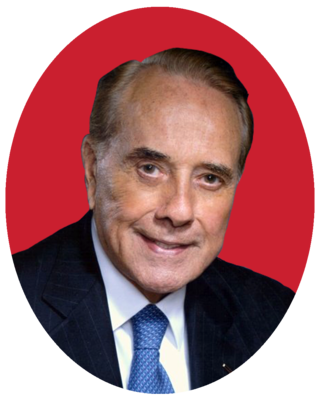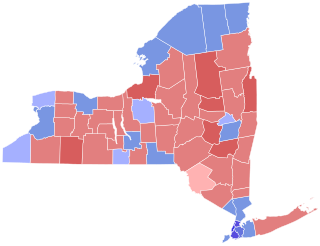History
The Journal of Politics & Society was originally founded as the Helvidius Group, established in 1989 by Peter Tomassi (CC ’91), to provide a forum for undergraduate discourse on issues concerning law and public policy in the form of a publication. The Journal of Politics & Society is the realization of that mission.
Originally an annual magazine distributed to Ivy League universities and to members of Congress, the Journal has adopted a more scholarly focus and has grown to encompass all of the social sciences. Now in its thirty-fifth year, the Journal only published academic papers submitted by undergraduates. In a process comparable to the peer review and editing procedures of professional academic journals, selected papers are rigorously edited by the Editorial Board, itself composed exclusively of Columbia University undergraduates.
Over its history, Journal has featured the works of noted public figures and scholars in addition to fine undergraduate scholarship. Past contributors include United Nations Secretary-General Kofi Annan, President Bill Clinton, New Jersey Governor and EPA Administrator Christie Todd Whitman, former Secretary of Defense William Cohen, Senator Elizabeth Dole, Secretary of State Hillary Rodham Clinton, the late Senator Daniel Patrick Moynihan, former World Bank President James D. Wolfensohn, Human Rights Watch President Kenneth Roth, Anthony Marx, and Kenneth Waltz.
Leadership on the Journal has also provided counsel and guidance to emerging undergraduate and graduate academic journals such as those at the United States Military Academy, Tbilisi State University in Georgia, and Columbia University. The Journal is not affiliated with or sponsored by any political organization, and it remains staunchly nonpartisan. It welcomes the questions of students looking to establish or develop similar publications at their institutions.
Following troubles in large part due to the COVID-19 pandemic, the current iteration of the Journal was reconstituted in 2022 by Jaehee Cho (Co-Editor-in-Chief, Class of 2023), Samuel Braun (Co-Editor-in-Chief, Class of 2024), Susan Li (Lead Senior Editor, Class of 2023), Ariella Mitchel (Business Director, Class of 2024), Sophie Hanin (Outreach Director, Class of 2024), Madelyn Elisondo (Secretary, Barnard College Class of 2025), and Alisha Arshad (Technology Director, Class of 2024). This website was redesigned by Samuel Braun and Jaehee Cho.

Columbia University, officially Columbia University in the City of New York, is a private Ivy League research university in New York City. Established in 1754 as King's College on the grounds of Trinity Church in Manhattan, it is the oldest institution of higher education in New York and the fifth-oldest in the United States.

Kofi Atta Annan was a Ghanaian diplomat who served as the seventh secretary-general of the United Nations from 1997 to 2006. Annan and the UN were the co-recipients of the 2001 Nobel Peace Prize. He was the founder and chairman of the Kofi Annan Foundation, as well as chairman of The Elders, an international organisation founded by Nelson Mandela.

The 1996 United States presidential election was the 53rd quadrennial presidential election, held on Tuesday, November 5, 1996. Incumbent Democratic President Bill Clinton defeated former Senate Majority Leader Bob Dole, the Republican nominee, and Ross Perot, the Reform Party nominee and 1992 Independent presidential candidate.

Robert Joseph Dole was an American politician and attorney who represented Kansas in the United States Senate from 1969 to 1996. He was the Republican Leader of the Senate during the final 11 years of his tenure, including three non-consecutive years as Senate Majority Leader. Prior to his 27 years in the Senate, he served in the United States House of Representatives from 1961 to 1969. Dole was also the Republican presidential nominee in the 1996 election and the vice presidential nominee in the 1976 election.

Christine Temple Whitman is an American politician and author who served as the 50th governor of New Jersey from 1994 to 2001 and as Administrator of the Environmental Protection Agency under President George W. Bush from 2001 to 2003. As of 2024, Whitman is the only woman to have served as governor of New Jersey.

Daniel Patrick Moynihan was an American politician and diplomat. A member of the Democratic Party, he represented New York in the United States Senate from 1977 until 2001 after serving as an adviser to President Richard Nixon, and as the United States' ambassador to India and to the United Nations.

The Edmund A. Walsh School of Foreign Service (SFS) is the school of international relations at Georgetown University in Washington, D.C. It grants degrees at both undergraduate and graduate levels.

Columbia College is the oldest undergraduate college of Columbia University, a private Ivy League research university in New York City. Situated on the university's main campus in Morningside Heights in the borough of Manhattan, it was founded by the Church of England in 1754 as King's College by royal charter of King George II of Great Britain. It is Columbia University's traditional undergraduate program, offering BA degrees, and is the oldest institution of higher learning in the state of New York and the fifth oldest in the United States.

The 1996 Republican National Convention convened at the San Diego Convention Center (SDCC) in San Diego, California, from August 12 to August 15, 1996. The convention nominated former Senator Bob Dole from Kansas, for president and former Representative and secretary of Housing and Urban Development Jack Kemp, from suburban Buffalo, New York, for vice president.
Michael W. Doyle is an American international relations scholar who is a theorist of the liberal "democratic peace" and author of Liberalism and World Politics. He has also written on the comparative history of empires and the evaluation of UN peace-keeping. He is a University professor of International Affairs, Law and Political Science at Columbia University - School of International and Public Affairs. He is the former director of Columbia Global Policy Initiative. He co-directs the Center on Global Governance at Columbia Law School.

The Line Item Veto ActPub. L.Tooltip Public Law 104–130 (text)(PDF) was a federal law of the United States that granted the President the power to line-item veto budget bills passed by Congress, but its effect was brief as the act was soon ruled unconstitutional by the Supreme Court in Clinton v. City of New York.
The School of Diplomacy and International Relations (SODIR), is a post-secondary, degree-granting institution concentrating on international affairs within Seton Hall University in South Orange, New Jersey. Founded in collaboration with the United Nations Association of the United States of America, it was the first school of international relations to be founded after the Cold War. The school offers both undergraduate and graduate programs. The School of Diplomacy and International Relations is an affiliate member of the Association of Professional Schools of International Affairs.

Ibrahim Agboola Gambari, CFR ; born 24 November 1944), is a Nigerian academic and diplomat who served as Chief of Staff to the President of Nigeria from 2020 to 2023.

The School of International and Public Affairs (SIPA) is the international affairs and public policy school of Columbia University, a private Ivy League university located in Morningside Heights, Manhattan, New York City. It is consistently ranked one of the leading graduate schools for international relations in the world. SIPA offers Master of International Affairs (MIA) and Master of Public Administration (MPA) degrees in a range of fields, as well as the Executive MPA and Ph.D. program in Sustainable Development.

From January 29 to June 4, 1996, voters of the Republican Party chose its nominee for president in the 1996 United States presidential election. Senator Bob Dole of Kansas, the former Senate majority leader, was selected as the nominee through a series of primary elections and caucuses culminating in the 1996 Republican National Convention held from August 12 to 15, 1996, in San Diego, California; Dole resigned from the Senate in June 1996 once he became the presumptive nominee to concentrate on his presidential campaign.

The 1994 United States Senate election in New York was held November 8, 1994. Incumbent Democratic U.S. Senator Daniel Patrick Moynihan won re-election to a fourth term. As of 2024, this is the last time a man has won the Class 1 Senate seat from New York.

What was originally called Harvard College (around which Harvard University eventually grew) held its first Commencement in September 1642, when nine degrees were conferred. Today some 1700 undergraduate degrees, and 5000 advanced degrees from the university's various graduate and professional schools, are conferred each Commencement Day.

This article lists those who were potential candidates for the Democratic nomination for Vice President of the United States in the 1992 election. On June 2, 1992, Arkansas Governor Bill Clinton won the 1992 Democratic nomination for President of the United States, and became the presumptive nominee. On July 9, 1992, Tennessee Senator Albert Gore Jr. was chosen as his running mate.

This article lists those who were potential candidates for the Republican nomination for Vice President of the United States in the 1996 election. Former Kansas Senator Bob Dole won the 1996 Republican nomination for President of the United States, and chose former Secretary of Housing and Urban Development Jack Kemp as his running mate. Dole chose Kemp as his running mate in order to solidify support among the conservative wing of the Republican Party, despite the mutual personal distaste the two candidates had for each other. The Dole–Kemp ticket would lose the 1996 election to the Clinton–Gore ticket.

A United Nations Secretary-General selection was held in 1996 at the end of Boutros Boutros-Ghali's first term. Boutros-Ghali ran unopposed for a second term and received the support of 14 of the 15 members of the United Nations Security Council. However, the United States vetoed his re-selection and eventually forced him to withdraw his candidacy.

















